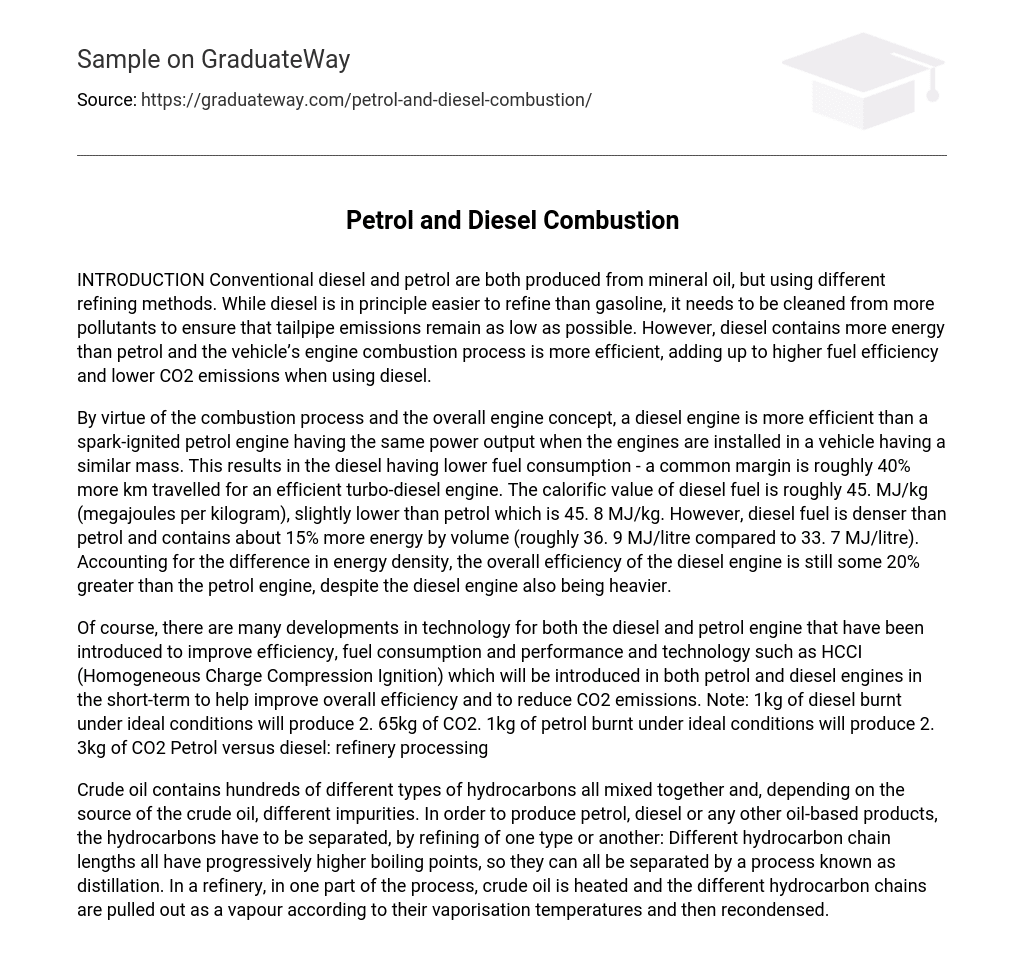INTRODUCTION Conventional diesel and petrol are both produced from mineral oil, but using different refining methods. While diesel is in principle easier to refine than gasoline, it needs to be cleaned from more pollutants to ensure that tailpipe emissions remain as low as possible. However, diesel contains more energy than petrol and the vehicle’s engine combustion process is more efficient, adding up to higher fuel efficiency and lower CO2 emissions when using diesel.
By virtue of the combustion process and the overall engine concept, a diesel engine is more efficient than a spark-ignited petrol engine having the same power output when the engines are installed in a vehicle having a similar mass. This results in the diesel having lower fuel consumption – a common margin is roughly 40% more km travelled for an efficient turbo-diesel engine. The calorific value of diesel fuel is roughly 45. MJ/kg (megajoules per kilogram), slightly lower than petrol which is 45. 8 MJ/kg. However, diesel fuel is denser than petrol and contains about 15% more energy by volume (roughly 36. 9 MJ/litre compared to 33. 7 MJ/litre). Accounting for the difference in energy density, the overall efficiency of the diesel engine is still some 20% greater than the petrol engine, despite the diesel engine also being heavier.
Of course, there are many developments in technology for both the diesel and petrol engine that have been introduced to improve efficiency, fuel consumption and performance and technology such as HCCI (Homogeneous Charge Compression Ignition) which will be introduced in both petrol and diesel engines in the short-term to help improve overall efficiency and to reduce CO2 emissions. Note: 1kg of diesel burnt under ideal conditions will produce 2. 65kg of CO2. 1kg of petrol burnt under ideal conditions will produce 2. 3kg of CO2 Petrol versus diesel: refinery processing
Crude oil contains hundreds of different types of hydrocarbons all mixed together and, depending on the source of the crude oil, different impurities. In order to produce petrol, diesel or any other oil-based products, the hydrocarbons have to be separated, by refining of one type or another: Different hydrocarbon chain lengths all have progressively higher boiling points, so they can all be separated by a process known as distillation. In a refinery, in one part of the process, crude oil is heated and the different hydrocarbon chains are pulled out as a vapour according to their vaporisation temperatures and then recondensed.





